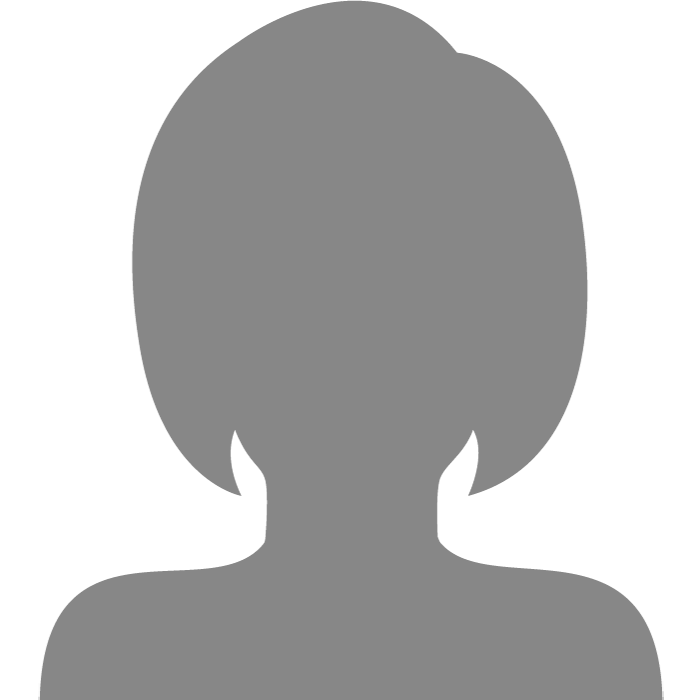| Topic: long winded good bye? | |
|---|---|
|
Hi, Fanta,
Thanks for your thoughtful points.... I have no doubt that his platoon buddies will view him as you suggest, and well they should. I wonder to what extent that may change as more and more soldiers receive the combat medical training that has been in the past given only to the medics? 
Oceans |
|
|
|
|
|
spider i was not speaking in terms of ancient past.....
i am speaking from NOW....with what we know NOW. if you want to find every contradiction ....you can . you know what i meant . we simply disagree. it's really ok. |
|
|
|
|
|
maybe those that see it as a chicken
are the ones to listen to if the egg is left to hatch and become a chicken it will feed many more than the egg could even be considered about    
my bad hugz ((((((alex)))))) |
|
|
|
|
|
ok would you rather i said it like if it smells like **** and looks like **** it probably is ****???
|
|
|
|
|
|
You all are just tryin to yoink my chain.....
   
|
|
|
|
|
|
I can only speak for Infantry soldiers oceans, but they do receive extensive medical(first aid) training already. We were tested for these skills bi-annually during SQT's. (skill qualification tests) This training is administered by the medics and they do the testing, as all training there are two grades, GO, and NOGO, there is no middle. We were trained in CPR, burns, gunshot wounds(sucking chest wounds), broken bones, and a variety of chemical warfare wounds(Russians)! The medics are trained far more extensively, but they are not Infantry soldiers, and only travel with us generally surrounded and well protected as we moved, but when the **** gets heavy they have exhibited bravery beyond many others. I have looked it up here, is what the MOS entails and the civilian classification:
68W (often pronounced as 6 8 Whiskey using the phonetic alphabet) is the Military Occupational Specialty (MOS) for the United States Army's healthcare medical specialist, also known as the combat medic. 68Ws perform countless roles alongside every soldier in the military. Whether they were marching with the infantry, riding with convoys, or working in a field hospital, they are trained to perform their job in any situation. Most health care specialists can and will work in home station hospitals in the emergency rooms and on wards, as well as unit clinics along with, or in the absence of CNAs' LPNs, and RMA/CMAs. The 68W health care specialist will and can also work as the senior enlisted person in a clinical setting, as well as the Platoon Sergeant of a medical platoon in field units. As senior personnel, the 68W will have various collateral assignments that must be performed, such as daily, monthly, annual training and counseling sessions for soldiers to better help them in assisting with the treatment and education of patients who visit the clinic along with self improvement. As of current the only civilian equivalent for 68Ws is Emergency Medical Technician, And here is the rules for them in combat: In most armies, medics wear specific insignia, with a prominent Red Cross on a white background. Islamic countries use a red crescent instead while Israeli medics wear the Magen David Adom (a red star of David on a white background). These symbols signify to enemy soldiers that the medic is a noncombatant, providing medical care. For many years, most medics have carried at least a side arm (and now, frequently a rifle, carbine or submachine gun), to be used as a defensive weapon. Medical personnel may be armed, but may only use their weapons to protect themselves or the wounded and sick in their care. If they use their arms offensively (i.e. attacking or assaulting), or carry arms that qualify as offensive (such as a sniper rifle, machine gun or grenade launcher), they then sacrifice their protection under the Geneva Conventions. Generally, a medic holding his/her weapon is considered to be an armed, military threat. According to the Geneva Convention, knowingly firing at a medic wearing clear insignia is a war crime. |
|
|
|
|
|
so what
|
|
|
|
|
     
I love you too Alex!!! I knew that was coming!! 
|
|
|
|
|
|
Fanta, many thanks for the research. Very interesting and pertinent.
One bit of info, and one question. The decision to up the medical training of each soldier was made in the last four weeks or so. The reason to do so was given as the importance of the first four minutes of care given to a wounded soldier. It was found that the one-medic/platoon structure was inadequate to meet the four-minute goal. I do not recall seeing a comparison of the level of individual soldier training that will be given compared to what medics now receive, so the medic may retain a unique skill level and role. We can probably find out more about this.... The question: are the MOS extracts current, are they valid for combat today in Iraq? There was toward the end of one of the extracts the following: "Generally, a medic holding his/her weapon is considered to be an armed, military threat." It seemed to me that this one sentance undermines the logic of the preceding statements about a medic only carrying weapons for defensive purposes. No? I can well see how a medic, coming under fire while carrying out emergency medical care, would fire back, and how the next time around he might start shooting just a bit sooner, until int he end he is firing like any other soldier. In Armydoc4U's earliest postings, he stated -- bragged -- about how many Iraqi 'rag-heads' he had killed, and how he would like 'to kill them all'. He didn't sound like a person fitting into or even wanting to fit into the MOS role that your extracts state. One last note: We are familiar now with the torture of Iraqi detainees at Ab Ghraib and Bagram, to say nothing of their mistreatment in the field before they were delivered to those prisons. What we don't know as well is that Army medics were present while the MPs and MIs (Military Interrogators) and CIA and contract interrogatrs did the torture. I would have hoped that the medics, of all people, would have been the first to try and stop the torture, or report it up the chain of command. Oceans |
|
|
|
|
|
Just a couple things.
I only knew Doc/Dennis for a short time, here. I did correspond with him on a few occasions and he always took time to understand me, my questions and to answer, even if I did not agree with his answers. What I saw of him in the posts was not totally the personality I communicated with one on one. I can say, I have several friends, today, just like Doc. They can be loud, obnoxious even, and rude and opinionated while in public. They offend and many do not like them or want to get to know them and would really love it if they just went away. With those I speak of, I saw something in them, and while it took some time and patience, I have become their friend. They have big hearts, and the friends they have gotten close over the years, have remained loyal and true, because the outside is fake, maybe a ruse, or a deterrent against getting too close. Each of them has tale to tell about their lives, but you must be close to them, to hear the truth and not the brag. Perhaps I was wrong, perhaps I did not know Doc at all, but what I saw in his writing when I first got her, was the same thing I saw in others, who I call friend today. What's more, because I became their friend, others decided, they must have SOME redeeming character, and now there is a group of friends, where once there was just a loud, abusive, opinionated brag hard. Sometimes we have to overlook, sometimes it only takes a look, and there is an apology where once there would have been a fight. I do understand all your perspectives, Bl8ant he was very cold and cruel to you, but you returned fire like a trooper, not like a medic either. Oceans, you made several good points about the mental and emotional capacities of those we send to war. While we train them for this duty, they have lived in a very sheltered world, the world according to America. Their abilities to perceive, translate, accept and adapt will go so far beyond any military training they will get. Too much information for so many who were raised in the gentle cradle of America. As for medic's - My Uncle is in his 80's, the only one of his platoon to survive battle during WWII. There were two medics assigned to the platoon. During the first battle, my Uncle took advice from the more seasoned medic doing what he was told to do, in order to survive. The first thing they did, was paint the truck to cover the red cross. In the first battle, they took shelter, until they were able to get to dead American soldiers, and they exchanged helmets, took off their armbands and ceased their weapons. During the battle, the two medics got separated from the platoon, when their vehicle took fire. They ran for cover, only to find that the real target was just yards away, a vehicle with a red cross. It ended up, that my Uncle was the lone survivor, injured but alive. There are not rules of war - there is only the intentional taking of lives, without conscience, what rules could be effective? |
|
|
|
|
|
Manpower Oceans. An Inf platoon is suppossed to be 44 men. Most of the time it is more like 28.
Redy there are rules, just not everyone follows them. The Genevea conventions rules regarding medics were not official until 1949. Mostly the germans and the americans had an unspoken ethical law and did not fire upon medics. The Japanese however would purposely target them. Where did your Grandaddy serve? During World War II (and before the implementation of the 1949 revision to the Geneva Convention made it illegal), there was an unwritten law of ethics between Allied and German forces whereby soldiers would not knowingly fire at a medic treating a wounded comrade. This was in stark contrast to the policy of the Japanese forces, who regarded medics as primary targets, resulting in Allied medics removing or covering their insignia. Instead of calling for a "medic" a wounded Marine would call for a "sailor" or other name in order to confuse japanese soldiers and prevent them from shooting medics. Two wrongs dont make a right, and as John McCain said, it is a dangerous game if you just start throwing out the rules because the other side doesnt follow them! |
|
|
|
|
|
well i am 1 that wishes he would come back
we may not agree on a lot of things but it does provoke thought process to see another point of veiw and that can't be a bad thing |
|
|
|
|
|
"Army medics DO fight and kill. They do patch people up when they are are wounded, but only then. Some medics are highly skilled and I have a lot of admiration for those skills. But their first reason for being there is to engage in combat."
Ocean I am sorry but you are dead wrong on this issue. an actual army medic (someone trained from the beginning as a nurse, or doctor) is not authorized to carry a weapon under geneva convention rules. They are protected by others, but a medic unit may not under any circumstances arm its medical personell. |
|
|
|
|
|
I was stationed with a COMBAT SUPPORT hopsital for almost three years one of which was under deployment. Trust me when I telly ou the MEDICAL personell are not authorized to be armed.
I might have been wrong about the nurses,. I think that has changed, but the doctors them selves stilla re not allowed to even have a pistol. |
|
|
|
|
|
Hi, Daniel,
Many thanks for correcting me. I was basing my comments on what Armydoc4U was saying abpout his tour in Iraq in his earliest posts (including some alarming ones on the Connecting Singles site -- couldn't wait 'to get back there to kill more Hajjis', etc). What your are saying makes more sense. Again, my thanks. It is great to have first-hand knowledge shared here. Question: with the new medical training that all US soldiers are going to have (as I understand it), might the lines between combat soldiers and unarmed non-combat medics become blurred? 
Oceans |
|
|
|
|
|
My son is a navy medic; navy supplies all the medical support for the Marines,he did 1 "float" with a MEU ( Marine Expiditionary Unit) to saudi 9 yrs ago. Training taught Vietnam changed rules for medics, if fired on/close to medic could carry a rifle along with the side arm he ALWAYS carried.
In Nam when a parol left base, medic would be rifleless, poimt man would fire 1 round close to medic, another man would hand medic rifle. Son going to Iraq very soon, will be given same weapons, ammunition, body armor all are issued. This is what I have been told. |
|
|
|
|
|
I miss Doc..
But I am practising with the UZI every day.. I may do better next time!LMAO 
|
|
|
|
|
|
boby (((hugs)))
|
|
|
|
|
|
Hi, Sage!
I love the story about firing the round near the medic and handing him a rifle. Is you son going as a Navy medic? What kind of action is he likely to be exposed to? You know he will be in my thoughts, old friend. When does he ship out? Oceans |
|
|
|
|
|
Bobby
  
|
|
|
|
|














